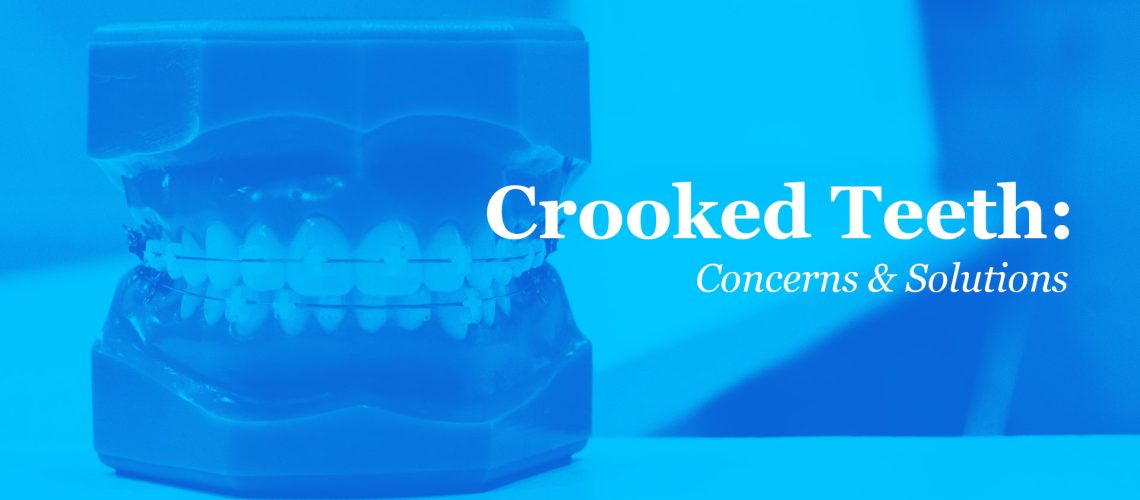Crooked, misaligned teeth create a condition called malocclusion, and problems associated with malocclusion go beyond the superficial. Sure, crooked teeth can impact your smile and your confidence levels, but the condition can also cause periodontal disease and premature wear caused by undue amounts of stress to your teeth and jawbone.
Even if you don’t feel any discomfort caused by crooked teeth, you could still be doing damage that will come back to haunt you later. Knowing the concerns regarding crooked teeth, as well as viable solutions, can help you keep your smile shining for years to come.
Types of Malocclusion
There are many different types of malocclusion, and each type comes with its own set of concerns. Crowding allows for a buildup of plaque and tartar between teeth that can be difficult to clean. This creates an environment where harmful periodontal bacteria can grow, leading to periodontal disease, as well as tooth and bone loss. On the other end of the spectrum, too much space between teeth can also be a bad thing. Extra space allows food to lodge between teeth, putting you at risk for periodontal disease as well. Extra space between teeth also opens your gums up to excess soreness and tenderness.
A deep bite means that the lower teeth can come into contact with the palate, causing damage to both the palate and the teeth. Meanwhile, a crossbite leads to premature wear on the teeth along with abfraction, which is a small noth in the tooth at the gumline. An open bite also carries a risk of abfraction, along with a risk of gum recession and loose teeth.
An edge-to-edge bite opens you up to the possibility of chipping or breaking teeth, as well as joint pain in the jaw. Excessive overjet, in which your top row of teeth extend out past the bottom row, makes the front teeth vulnerable to damage or trauma.
The Risk of Periodontal Disease
If you suffer from one of the types of malocclusion listed above, you’re not alone. Roughly 74% of Americans are affected by malocclusion in varying degrees. The misalignment of teeth can make it difficult to remove plaque and bacteria, creating a breeding ground for periodontal disease (more commonly known as gum disease).
Periodontal disease often starts with redness or bleeding in the gums while brushing or flossing. You might also notice halitosis (bad breath) as the disease sets in. Later, periodontal disease can cause gum inflammation that leads to soft tissue damage, receding gums, bone loss, and tooth loss.
At its most severe, periodontal disease doesn’t just affect your mouth – it can affect your overall health. Because of the way your body responds to periodontal disease, having the condition puts you at a greater risk of coronary heart disease, stroke, complications of diabetes, adverse pregnancy outcomes, and respiratory disease.
Solutions for Crooked Teeth
The best way to combat the issues caused by malocclusion is to straighten your teeth. Misalignment causes undue stress to the teeth that can result in chipping, poor root support, loose teeth, and tooth loss. Properly aligned teeth not only decrease the risk of these issues, but also lead to healthier gums, improved oral hygiene, and better overall health.
The common solution for crooked teeth is braces, but there are a lot of people for which braces are not the best option. Adults in particular may want a solution for crooked teeth that doesn’t involve a mouthful of metal brackets and rubber bands.
If you suffer from malocclusion, you can ask Dr. Renger about Invisalign® to straighten your teeth and improve your oral health. Invisalign involves a set of clear aligners that gradually straighten your teeth. The aligners are custom-fitted to your teeth and will progressively shift your teeth into the proper alignment. Dr. Renger can answer any questions you may have about the treatment, as well as help you decide if you’re a good candidate for Invisalign.

